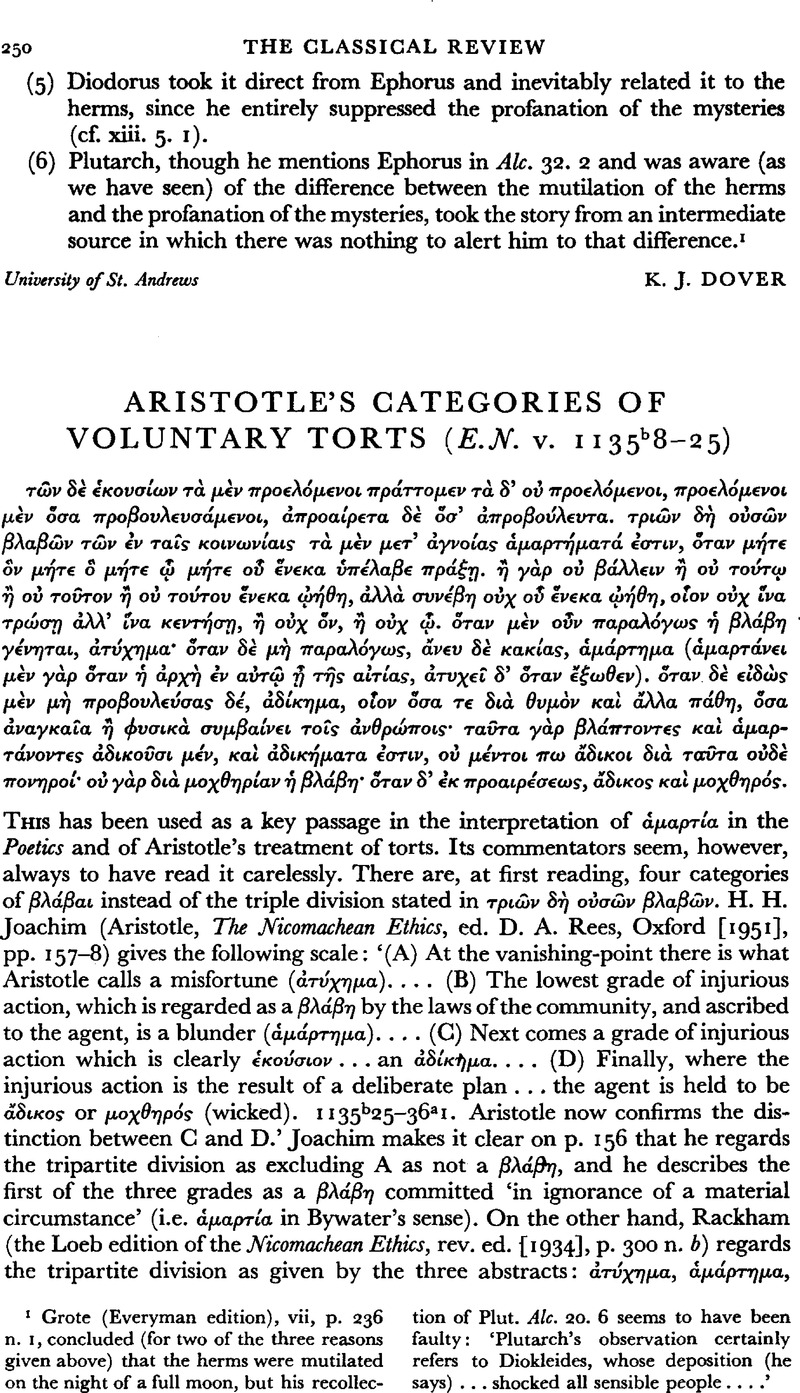No CrossRef data available.
Article contents
Aristotle's Categories of Voluntary Torts (E.N. v. 1135b8–25)
Published online by Cambridge University Press: 27 February 2009
Abstract

- Type
- Review Article
- Information
- Copyright
- Copyright © The Classical Association 1965
References
1 Jackson conjectured ἀγνοἱας, but ignored the fact that Aristotle is here discussing categories of voluntary and involuntary actions, precisely with the intention of finding for which actions a man may be held responsible.
2 In discussion of tragedy we may substitute the audience for the observers. Aristotle seems at Poetics 1452b−3a to be saying that the writer should make the audience aware of the potential βλάβη in the tragic hero's action (s).
3 It is perverse of L.S.J. not to list ‘hit’ as a normal Homeric sense at least of the aorist of τυγχάνω, for it is used in this sense by their own admission, and of the 29 instances of the aorist active only Il. viii. 430, xi. 116. 684; Od. vi. 290, xv. 158, cannot mean ‘hit’ (they are apparently related to ἐτύχθη), for Il. v. 587, xxiii. 466, Od. xiv. 334 (= xix, 291), xxi. 13 may be explained as extended uses of ‘hit’. That τυγχάνω in classical times carried notions other than that of mere chance is demonstrated by Gomme, A. W., Historical Commentary on Thucydides, vol. iii, pp. 488–489, etc.Google Scholar


